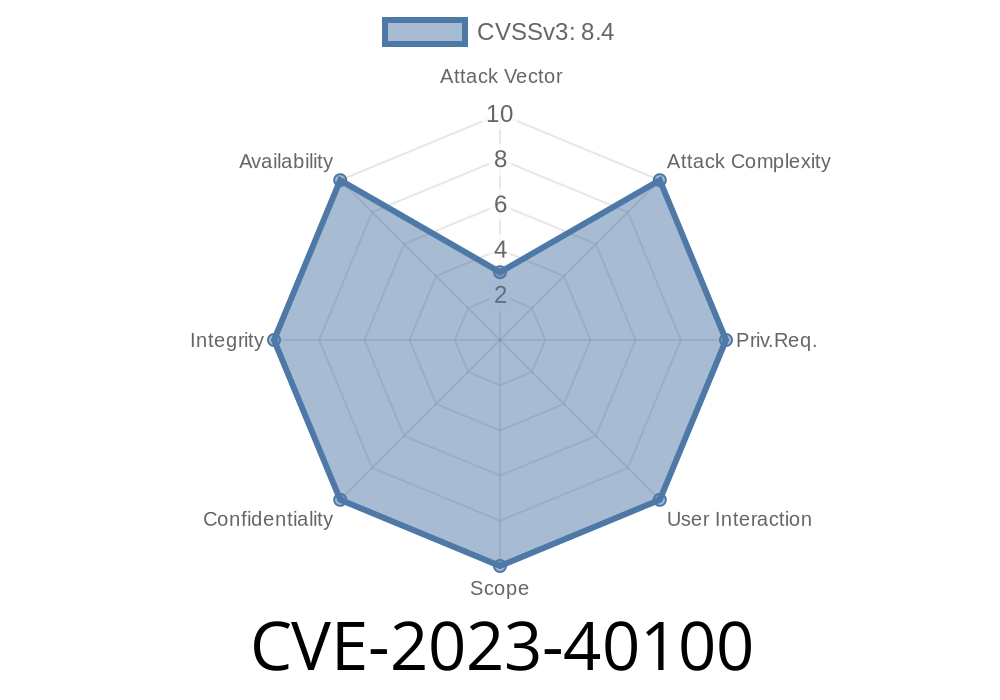The Android world was hit by another serious vulnerability that could let local apps gain higher privileges on a device—no tricks, no user clicks. This time, it’s CVE-2023-40100: a classic use-after-free (UAF) bug in the Dns64Configuration.cpp file. Let’s break it down in easy English, dig into the code, and walk through how this security hole can be exploited.
What is CVE-2023-40100?
CVE-2023-40100 is a local privilege escalation vulnerability affecting the Dns64Configuration.cpp component in the Android Open Source Project (AOSP) platform. It happens in the discovery_thread function, where it’s possible to access memory that’s already been freed—this is known as a use-after-free bug.
Random crashes or even code execution
- Possibly, a lower privilege process (like a regular app) could inject code or modify the behavior of higher privilege processes.
Apps or processes running as a regular user on Android can blast right through and get more power—maybe even root—using this bug.
Where’s the Bug in Dns64Configuration.cpp?
Here’s a genericized version of what’s going on. This is an example, and not the exact proprietary code:
void* discovery_thread(void* arg) {
Dns64Config* config = (Dns64Config*)arg;
while (running) {
config->do_discovery();
sleep(10);
}
delete config; // config gets freed here
return nullptr;
}
Imagine some other thread or callback is still using the config object after it's been freed. That’s a use-after-free bug in action.
At some point, delete config; is called, freeing its memory.
3. However, other code (maybe in a callback or after sleep()) accesses config, which now points to freed memory!
Arranges for their data or code to land at the same memory address,
- Waits for the use-after-free bug to kick in, leading to unexpected behavior—like privilege escalation.
Here's a super-high-level, illustrative Python-like pseudocode showing the use-after-free logic
# this is pseudo-code, not real Android code!
config = Dns64Config()
start_thread(target=discovery_thread, args=(config,))
# Wait for thread to free 'config'
wait_for_deletion_of_config()
# Spray memory to occupy the spot just freed
for i in range(10000):
allocate_fake_config_with_payload()
# Now, when 'discovery_thread' or another thread resumes
# and tries to use 'config', it uses the attacker's fake object.
Note: The actual exploit would require Android-specific memory manipulation and timing, but the core logic is just abusing the stale pointer.
Real-World Impact
This bug means a malicious app on your phone could secretly gain higher privileges without needing your approval. Local privilege escalation bugs are highly valued by attackers, because:
Official References
- Android Security Bulletin, September 2023
- AOSP Commit Patch for CVE-2023-40100
*(See references to race condition and UAF in Dns64Configuration.cpp)*
- CVE Details Entry - CVE-2023-40100
Patch and Mitigation
How was it fixed?
The official patch checks for valid pointers and ensures objects aren’t used after deletion. All memory is carefully managed so no other code can access freed areas.
Conclusion
CVE-2023-40100 is a powerful Android bug that needs almost no cooperation from the phone owner. By exploiting a classic memory management flaw, attackers can sneak past walls built to contain them. The best defense is keeping your device patched and being mindful of where you get your apps.
Stay safe, and if you’re a developer: always check your pointers before using them!
Tags: Android, CVE-2023-40100, Use-After-Free, Local Privilege Escalation, Memory Corruption, Security Patch
*This post is an exclusive breakdown. For more deep dives, check the original references above.*
Timeline
Published on: 02/15/2024 23:15:07 UTC
Last modified on: 08/28/2024 19:35:06 UTC
